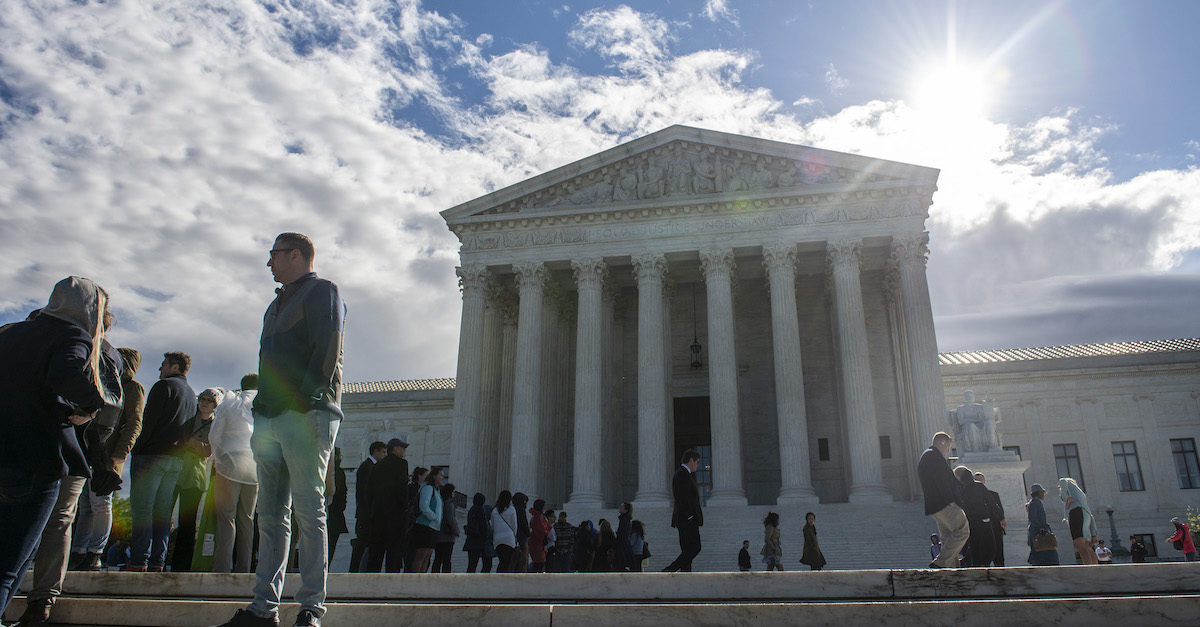
The Supreme Court on Friday issued orders granting petitions for review in four new cases that will be taken up next year. Here’s what you need to know.
Leading the way from today’s grants is a copyright infringement case that pits two tech behemoths against one another in Google v. Oracle. Oracle accused Google of stealing approximately 11,500 lines of code from its Oracle’s Java software language for use in its Android smartphone operating system. Oracle filed a lawsuit against Google in 2010 claiming the Android code amounted to copyright infringement.
After a California jury in 2016 found that Google did not violate existing copyright laws because its conduct was “fair use,” the U.S. Court of Appeals for the Federal Circuit overturned the verdict, remanding the case back to the lower court for a determination on the amount of damages for which Google would be responsible.
Google claims its use of Java code was “purely functional” in nature, similar to a traditional QWERTY keyboard layout, while Oracle maintains the code is a product of the company’s creativity, “like the chapter headings and topic sentences of an elaborate literary work.”
In Walker v. United States, the justices will decide whether a criminal offense that one commits with a “reckless” state of mind can qualify as a “violent felony” under the Armed Career Criminal Act (ACCA). Under the Act, the sentences of felons found guilty of committing crimes with firearms are extended if they have been convicted of certain crimes three or more times.
The appellant in the case, James Walker, is a former felon who managed a rooming house in Tennessee. Walker was sentenced to 15 years in prison after police responded to reports that drugs were being dealt at the rooming house; they discovered Walker in possession of 13 bullets he found while cleaning.
According to SCOTUS Blog, Walker’s attorneys are arguing that “the ACCA should not apply to his case. He contends that one of his prior convictions, for robbery in Texas, does not qualify as a ‘violent felony’ because a defendant could be convicted if he recklessly caused injury during a theft.”
The final two cases granted review deal with the statute of limitations for rape charges against members of the armed forces. U.S. v. Briggs and U.S. v. Collins were consolidated and will be heard together. The cases deal with whether a 2006 law specifically eliminating the statute of limitation for rape charges can be applied to rape allegations that were committed before 2006. The guilty verdicts of Michael Briggs and Richard Collins were both overturned by appeals courts in 2018. Both courts found that the five-year statute of limitations applied to allegations of rape made before the 2006 law was passed.
[image via ERIC BARADAT/AFP/Getty Images]